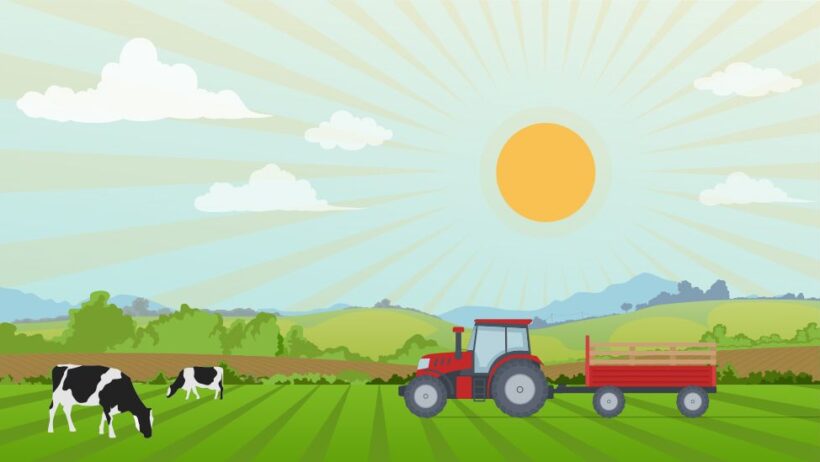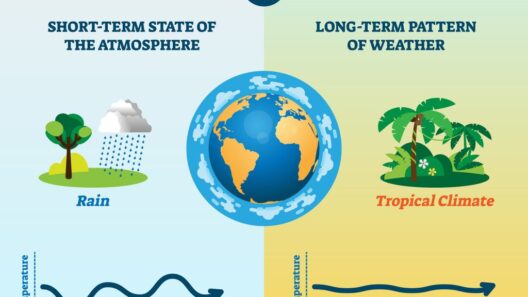As the specter of climate change looms increasingly large over the agricultural landscape, farmers around the world are finding themselves at the nexus of these environmental upheavals. The repercussions of global warming—from erratic weather patterns to shifting pest populations—are transforming the agricultural modus operandi. However, farmers are not merely victims of circumstance; they are resilient innovators, adapting their practices in ingenious and diversified ways to address these pressing challenges.
In this discourse, we will explore the myriad strategies farmers are employing to mitigate the effects of climate change. Additionally, we will examine the gaps that remain in these efforts and what is necessary to further empower these stewards of the land.
Embracing Agroecological Practices
One of the primary methods by which farmers are adapting is through the incorporation of agroecological practices. Agroecology goes beyond conventional organic farming; it encompasses a holistic view of agricultural systems that respects biodiversity and ecological principles. By implementing crop rotation, intercropping, and polyculture, farmers enhance soil fertility and structure. These methods also contribute to pest control and water conservation. For instance, rotating leguminous crops with cereals can naturally replenish nitrogen levels in the soil, reducing the reliance on chemical fertilizers.
Notably, these practices also form a bulwark against climate change. By diversifying crops, farmers can better insulate their yields from the vicissitudes of climate patterns. If one crop fails due to drought, others may thrive, providing a more stable economic base and food supply.
Implementing Precision Agriculture
Advancements in technology have ushered in a new era for agriculture, commonly referred to as precision agriculture. This innovative approach utilizes GPS and sensor technology to optimize field-level management regarding crop farming. By monitoring moisture levels, soil nutrients, and pest populations in real-time, farmers can make more informed decisions to reduce waste and increase efficiency. This targeted resource management not only diminishes environmental impact but also enhances resilience to climate fluctuations.
For example, through drone surveillance, farmers can identify areas within a field that require supplementary irrigation. This minimizes water wastage and helps crops sustain their growth during dry spells, effectively combating the degradation of arable land.
Soil Health and Carbon Sequestration
The health of the soil is paramount for productive agriculture. Acknowledging this, many farmers are adopting practices aimed at enhancing soil health. Cover cropping, for instance, involves planting crops primarily for the benefit of the soil rather than for harvest. Cover crops can minimize soil erosion, improve water retention, and sequester carbon—an essential factor in the fight against climate change.
Moreover, regenerative agriculture further advances these goals by focusing on soil regeneration. Techniques such as no-till farming and the use of organic compost foster an environment in which soil microorganisms can flourish, leading to enhanced carbon uptake. Farming can thus transform from a carbon emitter to a carbon sink, helping to mitigate the very changes that threaten agricultural viability.
Utilizing Water Wisely
Water scarcity is a critical issue precipitated by climate change. In regions prone to drought, managing water resources becomes increasingly vital. Farmers are incorporating advanced irrigation systems, such as drip irrigation, which delivers water directly to the plant roots, minimizing evaporation and runoff. This method not only conserves water but also promotes healthier crop yields.
Additionally, rainwater harvesting and the construction of retention ponds are gaining traction. These initiatives enable farmers to capture and store rainfall for dry periods, ensuring their crops receive the requisite hydration. As the practice becomes more widespread, it can fundamentally shift the paradigm of water usage within agriculture.
Market Diversification and Sustainable Practices
Beyond agronomic adaptations, farmers are also diversifying their markets to bolster economic resilience against climate-related disruptions. By exploring organic markets or local food systems, farmers can create new avenues for revenue while supporting community well-being. Sustainable practices such as agro-tourism can provide supplementary income, allowing farmers to capitalize on the growing consumer demand for sustainability and organic products.
Moreover, establishing cooperatives enables farmers to collaborate on resources, knowledge-sharing, and market access. This solidarity not only strengthens individual farms but also fortifies entire communities against the uncertainties wrought by climate change.
Addressing Remaining Gaps
Furthermore, education and training are paramount. Providing farmers with the necessary knowledge about sustainable methods and technologies maximizes the potential benefits. Extension services that connect farmers with scientists and agronomists can play a pivotal role in this transition.
The adaptation of agriculture to climate change is a multifaceted issue that requires a collective effort from farmers, policymakers, researchers, and consumers alike. As the landscape of agriculture continues to evolve, recognizing and supporting these initiatives will be crucial for ensuring a sustainable and food-secure future. The journey towards resilience is ongoing, driven by farmers who are not only adapting to climate change but are also championing a more sustainable approach to food production.





